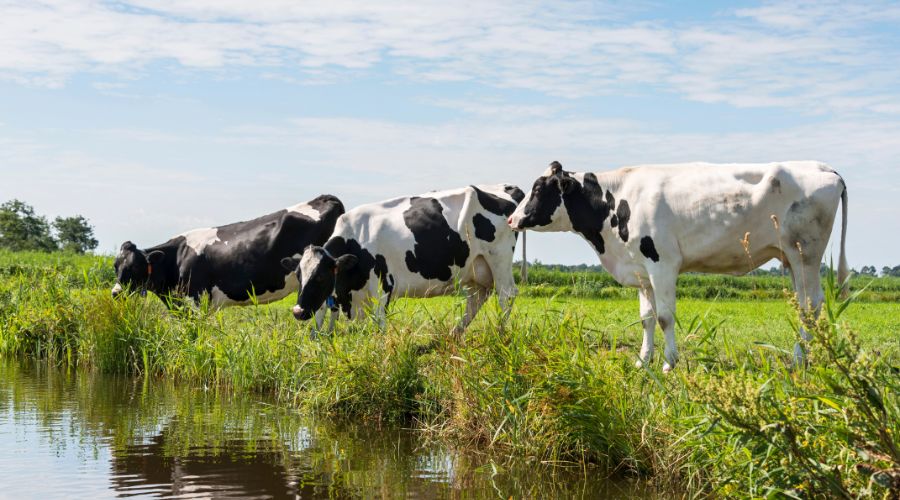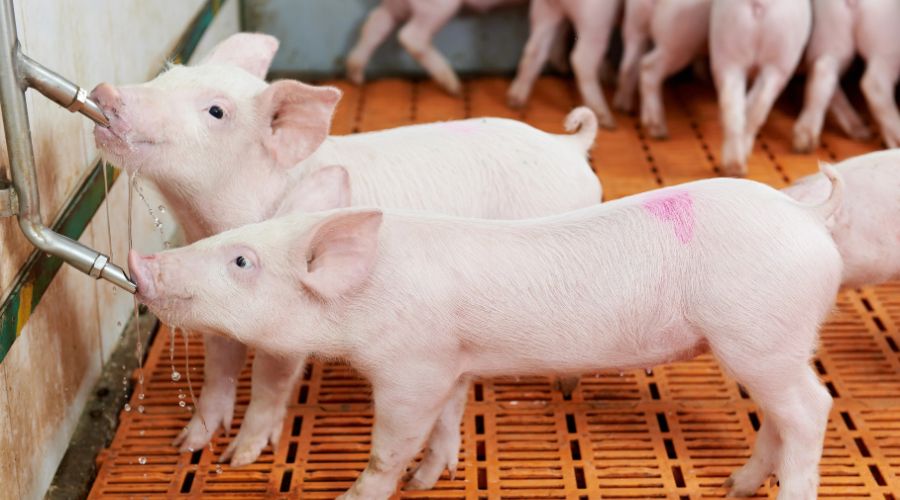RSPCA Assured issues important advice to farmers as temperatures soar
26th June 2024
As daytime temperatures across England are set to reach 30ᐤC this week and yellow heat alerts are put in place, RSPCA Assured is offering farmers tips on how to keep their animals cool in the heat.

Hot weather can cause serious welfare problems for farm animals, and the next few days are predicted to bring some of the highest temperatures of the summer.
Taking steps to keep your animals cool is vital over the coming days, warns Emilie Wix, head of RSPCA Assured’s new farming engagement team.
Ms Wix said: “Knowing how to spot the signs of heat stress and how to prevent it is essential for the welfare of farmed animals.
“The RSPCA welfare standards contain important guidance on how to manage hot weather for individual species.
“We hope a quick refresher of some of these tips serves both as a useful checklist for our members as temperatures rise, as well as being helpful reminders for farmers outside of the RSPCA Assured scheme.”
How to protect farm animals
Air flow and ventilation
It is essential to make sure that housed animals have plenty of air flow and that their housing is well ventilated. Farmers can achieve this by bringing in additional fans to keep the air moving and help reduce the risk of heat stress.
Shade and clean water
In hot weather, farmers should give animals plenty of additional shade and pay extra attention to water provision, ensuring there are no issues with access to water.
Water for farmed animals should always be kept fresh. However, in the heat, farmers should take extra precautions to ensure that it remains so. Farmers can also consider adding extra water troughs to reduce competition for water sources, ensuring all animals are able to easily stay.
Outdoor animals will need plenty of shady areas to cool down in and avoid the heat of the midday sun. All man-made shady areas should be well-ventilated to allow plenty of air circulation and prevent them from getting too hot.
The warm temperatures also mean that sheep may be at high risk of blowfly strike, as female flies are active and laying eggs. Farmers should remain vigilant and take appropriate precautions.
Keep dairy cows cool when milking
In high temperatures, cooling cattle down with water while they are waiting to be milked may be helpful to stop them from experiencing heat stress.
Reduce transport and movement times
The transportation of animals in hot weather should be avoided unless this is absolutely necessary. Where possible, this should be done during the coolest part of the day, night time is usually the best for this movement.
Transport, as well as handling, imposes additional stress on animals, and this makes it more difficult for them to cope with the heat.
Activities like herding should ideally be done in the cooler hours of the day. If farmers are herding or transporting animals, they should check frequently for signs of heat stress and take quick action if they notice an animal struggling.

Dust baths, mists and wallowing
It may be helpful to cool indoor animals down by misting the air to lower the temperature.
Outdoor pigs should ideally have some sort of artificial or natural wallows available so they can lose heat through evaporation. Wallows also allow pigs to cover themselves in mud, which serves as natural sun protection.
Hens and chickens need plenty of space to dust bathe, which helps them cool down. Dust bathing areas should be located in well-ventilated areas or in shaded areas on the free-range area to help the hens stay cool.
Ms Wix added: “If an animal appears to be suffering from heat stress and you are unsure what to do, you should seek immediate advice from your vet.”
Find out more about RSPCA Assured and the RSPCA welfare standards online here.
Read more livestock news.
